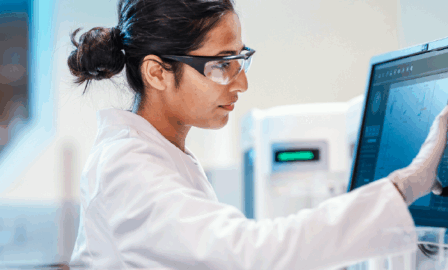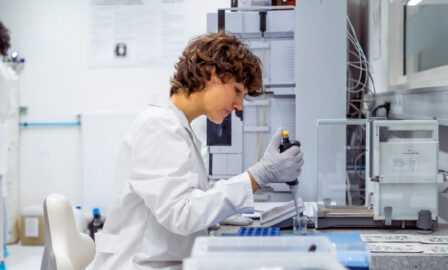Scientific Data Management System (SDMS) For Laboratory Operations
As companies build toward having a “Laboratory of the Future,” one of the major areas of non-compliance involves instrument files. Even if you currently utilize a Laboratory Information Management System (LIMS) and have data directly transferred from instruments to that LIMS, compliance issues can arise due to things like reprocessing data, changing data in files, deleting or overwriting files, or moving files to new locations when server or stand-alone computers run out of space. Here’s some reasons why you should consider SDMS for your laboratory operations:
What is a SDMS?
A Scientific Data Management System (SDMS) is a system for managing the raw data that instruments – either with a built-in processing system or that have an associated computer with controlling software – generate. While all vendors may offer different features, the general features of these systems include:
- A centralized location to store all generated files by automating the moving of the files.
- Version control of files to eliminate overwriting.
- Audit trails showing changes to files.
- Ability to create files from instruments that don’t output data to files, such as balances or pH meters.
- Directly transfer selected reportable data to other systems such as LIMS.
- Ability to view data from all instruments using a common interface and trend data from individual instruments.
What are the Benefits of a SDMS for Laboratory Operations?
- Data Archival: SDMS systems make the task of archiving instrument files much easier than trying to perform it manually. Organizations trying to do this on their own usually set up networked file shares or servers that quickly start to get full, requiring the need to increase space. These organizations also usually give users access to create their own folders and name their files as they see fit, which quickly leads to a system that becomes hard to organize and find files when needed.
- SDMS systems will monitor network locations, looking for new files and moving them to a centralized location, either on-premise or to a cloud location, and allow for an automated naming system based on criteria the organization deems important (i.e., instrument, site, assay, etc.).
- Version Control of Processed Files: SDMS systems will monitor processed files, automatically creating new versions of the file when the system detects changes to the original file. Along with this benefit of creating new versions, audit trails are created that show what changes occurred, when they occurred, and who made the change. Files can also be locked in order to prevent changes or reprocessing to the file. This is especially important for files that have already been used for quality decisions.
- Data Integrity: One of the most important issues surrounding regulated laboratories in recent years centers around data integrity. The Food and Drug Administration (FDA) issued new guidelines around data integrity, specifically on how regulated laboratories handle such things as retention, storage and backup of data, documentation of activities to the data, maintenance of complete information, traceability of the data to the systems of record, and the review and verification of records.
- These activities apply to all types of data, including raw data from instruments, manipulated data (such as calculations, data transformations, and processing of files), reported data, and meta data. Utilization of a SDMS is a big step toward giving regulated laboratories piece of mind in these areas.
The leadership of regulated laboratories often see the need to put systems – such as LIMS, Chromatography Data Systems (CDS), Electronic Laboratory Notebooks (ELN), and Laboratory Execution Systems (LES), quality document management systems, and deviation investigation management systems – in place to comply with federal guidelines. However, many don’t see SDMS systems as being as important as these other systems. SDMS for laboratory operations can be critical in maintaining the data integrity of all the raw data coming from every instrument in your laboratories, making traceability of reported data back to these files easier and giving your users a structured environment to maintain all of their instrument data.
Subscribe to Clarkston's Insights
Contributions from Ken Alves



